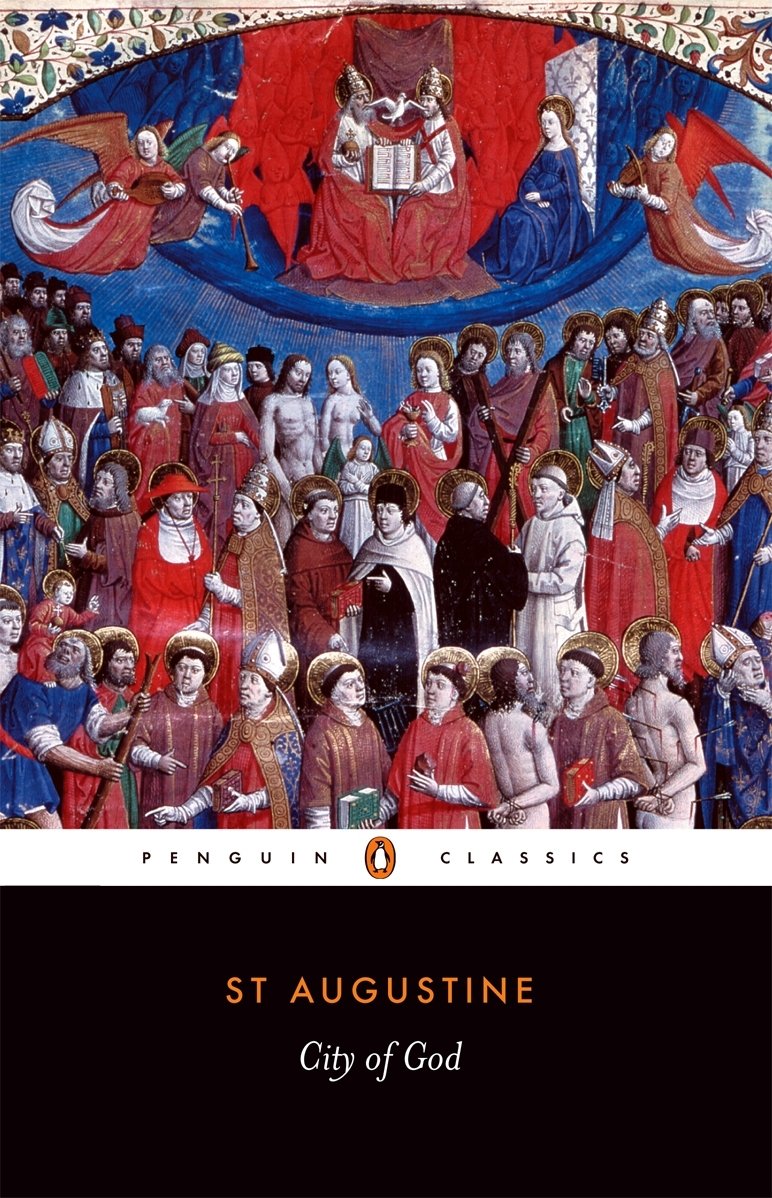A Brief Book Summary from Books At a Glance
By Steve West
Introduction
Augustine’s The City of God is one of the most influential works in the history of literature. It is a towering achievement of Christian philosophy that defends Christianity in light of the pillage of Rome. Augustine critiques and attacks pagan religion and morality, and rebuts those who were blaming Christians for the sack of Rome. He develops a biblical theology of two kingdoms, the city of the world and the City of God. Augustine traces out the origins, historical advance, and eternal ends of the two cities. Despite human sin, the City of God will conquer and be victorious. The final culmination of the city of man is in eternal punishment, but the final state of the City of God is consummated Glory.
The City of God consists of two parts which are divided into numbered books. Part 1 contains Books 1-10, and Part 2 contains Books 11-22.
Summary: Part 1, Books 6-10
Part 1: Book 6
It has been thoroughly demonstrated that worshiping the gods is futile in this life, but some suggest that we need to worship them to gain benefits in the life to come. But how can the gods grant eternal life, when they are so specialized in this world that they only have jurisdiction over the tiniest of spheres? If the gods can’t trespass their bounds to grant us minor temporal things, how can we ask them for eternal life? Marcus Varro was recognized as a leading intellect, and he has written significant works on the gods. He treats human institutions before divine ones, because human communities pre-existed the divine institutions that they celebrate. Varro divides his theology of the gods into mythical, natural, and civil categories. Mythical theology was produced by the poets, natural theology by the philosophers, and civil theology by the people. Mythical theology contains many inaccuracies, but it pleases the people. Varro favors natural theology as the most insightful and accurate of the three, yet he has to accommodate the gods of the city, and the gods of the city are worshiped through the theology and plays of the poets. Civil theology is shaped by the mythical. What is performed publicly on stage is obscene and perverse, and what is done privately in their temples is worse. Both mythical and civil religion need to fall together. The number of gods and goddesses who are required for protection (sometimes from one another!), the daily activities, perverse sexual intercourse, etc. is beyond belief. They are so numerous, specialized, immoral, and absurd, nobody can ever expect to receive the blessing of eternal life from beings such as they are. Seneca criticized civil theology with much more power than Varro. He pointed out the cruelty and insanity of some of the acts of worship that take place. Nevertheless, Seneca still participated in civil religion, in spite of what he had written. Seneca also condemned the Jews for wasting a good part of their lives by resting from their works on the seventh day. The gods are simply incapable of providing temporal aid, let alone eternal life. Only the true God gives felicity, and he alone should be worshiped.
Part 1: Book 7
Out of the large number of gods, we select some as the most important and the most useful for gaining a happy life. Varro identifies twenty select gods, twelve male and eight female. Many of them have to work together to bless a couple with fertility, since they all are in charge of such narrow particulars. Why some gods are considered select while other ones who discharge more important functions are not placed in that upper tier is a mystery. It is very difficult to see why Virtue, Felicity, and Fortune are not considered select, when we consider how vital they are for human happiness and flourishing. Ironically, it is the select gods who are most slandered, since we attribute more obscenities to them than we do to the relatively obscure deities. Varro argues that the Soul of the World and its manifestations are the true gods, but his view does not lead to the true God. Varro believes that the cosmos is God’s body. Janus is praised as the god of beginnings, and Terminus as the god of endings, but how can a wise person begin something without already viewing its intended end? Why is Janus held in higher esteem than Terminus, when it is actually the ending of a matter that brings more joy than its beginning?
Varro identifies Janus as the world, but Jupiter is also identified as the world and as the king of the gods. It is difficult to see how they are not, therefore, one god. Some may say that Janus is the beginning but Jupiter is the causal power, but a person isn’t divided into all of their distinctive powers. In fact, numerous powers and titles are ascribed to Jupiter, but he is still considered one being. It is impossible to determine why some powers are associated with Jupiter when others are associated with lesser gods and goddesses. The amount of redundancy and lunacy that is produced by. . .
[To continue reading this summary, please see below....]The remainder of this article is premium content. Become a member to continue reading.
Already have an account? Sign In
